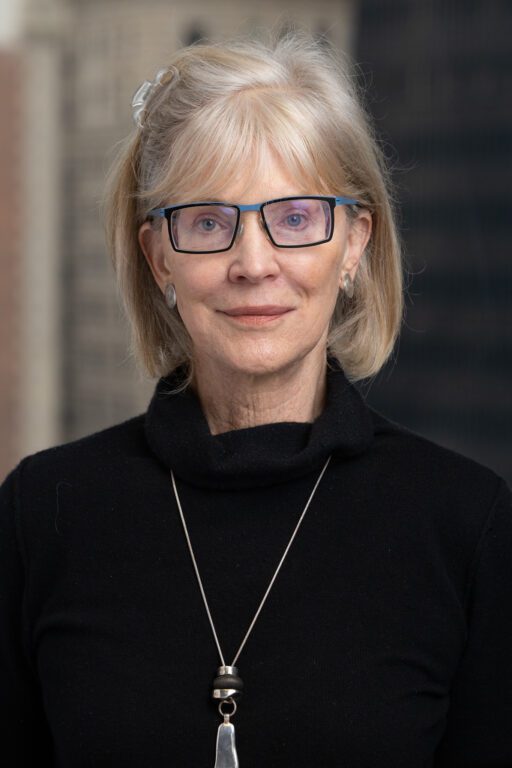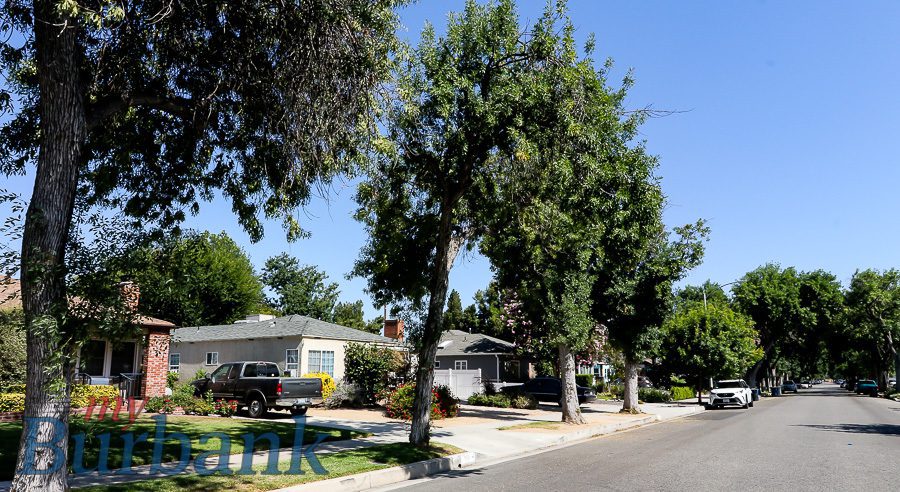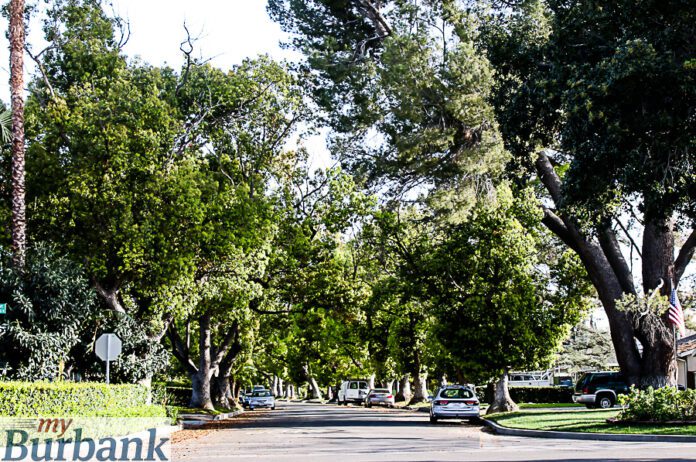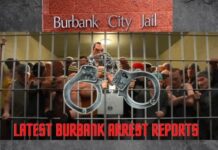Editor’s Note: This is the first in a three-part series to educate myBurbank readers and our community about the bad housing bills pending in Sacramento this year. Part One: Introduction and focus on the content of the bad housing bills which will affect every neighborhood in Burbank with massive up-zoning and leave the city and its residents without a right to determine its own future.
by Emily Gabel-Luddy
Past Mayor of Burbank; former city planner/former member of American Planning Association

Introduction
As if dealing with the Coronavirus, record-breaking heat, and a historic drought is not enough of a challenge, California state legislators — senators and assembly members — are preparing to pass two pieces of legislation, SB9, and SB10, that will eliminate local control over where and how development will impact your community! And because our attention has been focused on these other very serious challenges, few people are aware of this looming threat to our neighborhoods and its potentially catastrophic consequences to Burbank.
It is essential that we are all educated on the content of these bills and how they can affect the quality of life for you, your family, and your neighbors.
These bills threaten neighborhoods with overwhelming density with no thought to context, infrastructure or access to transit or livability. Very few folks have heard of them, much less realize what they mean to cities and the stability of communities.

My colleagues and I have prepared three articles to help you understand the issues involved. The first addresses the content of these bills; the second shows the impact of existing densification law on our neighborhoods and questions the State’s lack of accountability, and the final piece addresses what really happened after similar laws were enacted in Minnesota.
These bills have been championed by State senators primarily from the Bay Area who point to the need for affordable housing in California and claim that increasing the number of housing units allowed on single-family lots is the only solution. Sacramento has chosen to rely on private sector developers and real estate interests to resolve very real social issues related to housing, generational wealth, economic opportunity, disparities, and displacement.
The strategy that they have chosen is to put all their eggs in one basket – the presumption being that increasing the number of houses that can be built by-right on all single-family lots in California will somehow magically solve all of the aforementioned ills.
If passed, Senate Bill 9 (SB9) will increase the number of units that can be built on a Burbank single-family lot from one home to 4, 5, 6, or more. Because the bill requires ministerial “over-the-counter” approval for additional density, our Burbank City Council will be prohibited from adding requirements such as parking spaces, housing sized for families and not just single professionals, and green space.
SB10 would go one step further — allowing an increase in the number of units to go up to 14 dwellings if a majority of the City Council votes to approve the process. But again, the City is prohibited from adding any requirements to projects. Neither Bill, SB9 nor SB10, place any requirement on these developments that units would be “affordable” — the alleged reason for the bills in the first place.
This series will discuss these bills focussing on: the complete loss of local self-determination of Burbank and every other community in California — meaning you will no longer have any voice on land use or zoning; the absence of any metrics in these bills to define what success in affordable housing looks like; the true results of affordable housing efforts in Minneapolis (one of the first cities to upzone all single-family lots to three units). It concludes with recommendations of how/where to address affordable housing with State-City participation and partnership, not state policy that serves to enable more wealth transfer to investors.
Cities lost the direct ability to produce affordable housing 10 years ago when the State eliminated — and has not restored — the local subsidies needed to support its construction.
Our City Council recently submitted to the State a thorough and practical approach to developing affordable housing in our City. Our Council has made decisions for additional housing in places that make sense while striving to protect Burbank without undermining our infrastructure and tax base.
Many neighbors have elected to build the accessory dwelling units already permitted by State law with over 800 applications already submitted. However early data indicates that accessory dwelling up-zoning may be driving more lack of affordability.
Notwithstanding Burbank’s efforts to be constructive and forward-looking within the context of our own community, the State is poised to yank the rug out from under us, leaving important decisions related to the lives of our neighbors to the whims of for-profit real estate developers and investors.
Content of the Bad Bills
What SB9 DOES:
- It permits a single-family lot to be split in 2 with no requirement for notice, hearing, or even common improvements like an ADA sidewalk. The new lot will allow 2 more units. The original lot can already have a home and 2 ADU’s.
- It increases the number of units on all single-family lots to at least 4 where one now stands.
- It prohibits cities from requiring impact or infrastructure demand assessments for water, sewer, energy, solid waste, or school classrooms.
- It prohibits cities from requiring any parking if within 1/2 mile of transit; and if outside the 1/2 mile radius only one parking space per unit.
- It prohibits cities from requiring a side- or rear-yard setback from the property line of more than 48-inches.
What SB9 does NOT do:
- It does not require any affordable housing and prohibits local government from requiring it.
- It does not analyze any cumulative impacts.
- It does not value “green” open space. Is too much open space bad? Where will shade trees thrive to help reduce energy costs? Ignores the reality of heat-island effects in an era of climate change reality.
- It does not examine the real effects of similar proposals elsewhere. For example, Portland neighborhoods found themselves steamrolled with congested streets after the city banned on-site parking requirements. In Burbank and Southern California, parking will be off-loaded to the public residential streets, and trash day will get even more complicated.
What SB10 DOES:
- It permits up to 14 dwelling units on a lot by a vote of a majority of council members.
- It over-rides local voter initiatives. A one-person-one vote for a land-use initiative in a city will be permanently extinguished by virtue of a Council vote.
- It stops future Councils from down-zoning properties once they have been up-zoned under SB10. If they try, SB10 requires CEQA studies, and infrastructure assessments — studies not required to impose overwhelming density, to begin with.
What SB10 does NOT do:
- It does not require any affordable housing
- It does not require CEQA assessment or evaluation of densification on infrastructure demand for water, sewer, energy, solid waste, or school classrooms.
For anyone who wants to dig deeper into these bills and what they mean, a Zoom Statewide Town Hall will be held to discuss these bills on Saturday, August 7, from 10 a.m. to noon.
The Town Hall will provide you and your neighbors more information on the physical impacts to neighborhoods and communities; the effects on displacement and gentrification; and add perspectives from diverse participants.
For more information go to livablecalifornia.org
NEXT UP: Who Benefits? What Does Affordable Housing Success Look Like?






















Emily Gabel-Luddy is a cry baby. She had a hand in causing these bills in the first place. This intervention is long overdue. Year after year our council placed impediments for property owners to add units to their property (properties already zoned for multi-family). It was effectively down zoning. Ever since Measure One, development has stopped. I am GLAD Sacramento is stepping in and saying enough is enough and mandating we create housing. Gabel-Luddy has a personal agenda to stop development. Any development that she allows would need to pass HER specifications. What rite does she (and others of her ilk) have to add costs and features the they feel are correct? We already have codes that dictate what is allowed. In project after project our local officials ADDED (forced at great cost) to anyone wishing to add on to their property whatever they felt was appropriate. It was blackmail. All of her arguments are ‘red-herrings’. Burbank has an over abundance of electricity – we have so much generating capacity, we sell to other cities. We have plenty of capacity to process sewage. We are using less water than ever as many people have installed water saving devices over the years.
Please do not be scared by Gabel-Luddy and her comrades who want to keep control of YOUR property. The sky is not falling.
California cities have failed miserably to add new housing stock. When each new project is derailed by a historic commission, bogus environmental review, or other city controlled process the residents suffer. Trying to scare your constituents over the character of their neighborhoods instead of recognizing the dangerous escalation of housing costs in Burbank is irresponsible. Cities in So Cal have absolutely abdicated their responsibility to increase transit and increase livability while prioritizing cars over people. Have you ever taken the Metrolink? Have you ever taken the bus? Why are we prioritizing cars over people in downtown Burbank? Normal families like mine at being priced out of Burbank so that a small handful of residents can be house rich. Don’t gaslight us by blaming the state for the problems you have continuously failed to address at every opportunity.
I have used public transportation many times. Burbank Buses run empty most of the time…just a side note.
I disagree that living here is expensive. It costs what it costs. I work my tuchus off to afford my home.
Rent controls have raised prices because it is price shifting when one tenant pays substantially less than their next door neighbor. Price controls result in higher prices for new people moving into a city. This is a well-studied topic and you can learn about it from very smart people like Thomas Sowell. For example: https://youtu.be/dnj2WRIG11U
People coming from all over the world to live in the region to pursue the hope of becoming a star is perfectly fine in my book so long as those same individuals do not retort about the cost of living and expect those of us already here to shore up their finances. The latter is a movement that has strangely popped up in our community…people wanting lots of “free” stuff. It is misrepresentation to call any taxpayer-funded program “free.”
California metro areas cost what they cost. The idea that housing is overpriced is nonsense. Free markets will do the best job in setting prices. Rent control is the #1 cause of high rents. It is price shifting. Consider having a roommate in your $2,000 a month apartment who pays you $500 a month yet takes 50% of the space…is that right? That is what rent control does to residents.
I had a client, a Harvard attorney whose mother left him a Hollywood apartment building walking distance from Sunset. The 2 bedrooms were renting for $550 to $750 due to rent controls.
The tenants paying pennies on the dollar would call the health department over every little thing yet after he died his widow lost the building since his high income was subsidizing the building and she couldn’t keep up $ with it.
Rent control means not everyone pays their fair share and it also means less remodeling by the property owner and fewer vacant parcels being developed.
There are plenty of affordable towns in America. We do not have to become an over-crowded city to help accommodate those who wish to live here, but cannot afford our prices. Not everyone can or should be a resident of Burbank. First, you must have the income for it and the ongoing means to keep paying the mortgage or rent. When I first moved here, I had TWO roommates. Now I have none, but I also worked long hours to get where I am. I saved and invested. Why should someone driving a leased sports car, receiving Section 8 and social welfare programs be entitled to live in our finest neighborhoods? It makes no sense. I was broke as a joke in 1985 and homeless. I can assure you that being broke isn’t genetic. I overcame it.
The Beverly Hills City Council would laugh me out of their chambers if I asked them to make affordable housing available to me…
If zoning allows a particular type of building currently, then the City should allow it. I’m skeptical that the state will do a better job managing our community for us. That concept has not worked out well with education, with Sacramento managing all the money and evaporating a lot of it before it comes right back to the community, e.g. the BUSD tried to pass a parcel tax to shore up the alleged lack of funds but what really is happening is the money shrinks after the state has their hands on it. Ideas are fine, but lets all look at the track record of the state in handling our affairs.
I believe that city government has contributed significantly to the current housing situation. However, I also believe that the state mandated “solutions” being proposed would make a difficult situation far worse. My preference is that the city retain control over local land use decisions, as they are at least nominally accountable to local voters. I would not literally surrender those same decisions to real estate developers and investors (who would likely not all be residents of this city, state or even country) who are only accountable to their investors or just themselves.
These new State bills are great! Since the 80s, California chose a short-sighted, not in my backyard approach to housing and now everyone under 40 is feeling the pain. Given California’s attraction to younger outsiders and an inherent change in demographics, we’re voting for people who will actually try to solve the housing issue. So no, these bills aren’t insidious machinations from urban scumbags, they’re the first of many attempts to do the job the old guard was supposed to have done 20-30 years ago.
Comments are closed.